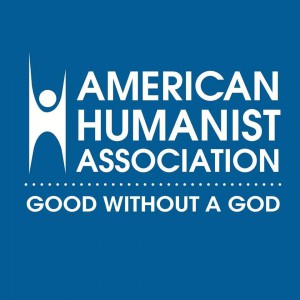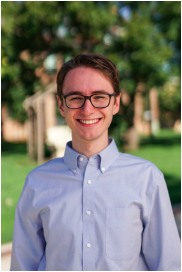Meet the New AHA Intern: Daniel Lawrence

Welcome our new legal intern, Daniel Lawrence!
What is your educational and work background?
I graduated from Colorado College in 2020 with a major in philosophy and a minor in political science. This May, I finished my first year at the University of Texas at Austin School of Law. In 2019, I was a summer legal intern for the Travis County District Attorney’s Public Integrity Unit. Most recently, I worked as a legal intern for the healthcare technology company Edifecs in the summer of 2020.
How did you first learn about humanism?
The first time I learned about humanism was in high school when I encountered speeches by public figures, including Stephen Fry and Daniel Dennett. Learning more about humanism, I appreciate that it sets out a positive philosophy of reason, respect, and responsibility.
 Did you grow up in a traditional religious faith? How did it impact you?
Did you grow up in a traditional religious faith? How did it impact you?
My upbringing was culturally Jewish but generally nonreligious. I attended a Jewish day school for six years, where I learned about Jewish history, prayer, and doctrine. Both my family and my educators emphasized the value of critical thinking, and I was encouraged to form my own beliefs about the world. Critical thinking soon became a closely-held personal value. Throughout my Jewish education, I attempted to distinguish the helpful, community-forming elements of my religious environment from the anachronistic. Doing so inspired me to seek out and critically evaluate a variety of systems of thought, culminating in my studying philosophy in college.
What interested you most about working for the American Humanist Association?
I believe strongly in the importance of civic engagement and was excited by the American Humanist Association’s multi-faceted approach to public advocacy. In particular, I was interested in gaining experience with public-interest constitutional litigation. I am looking forward to working toward realizing the promise of the First Amendment’s Establishment Clause by helping to ensure that no government entity endorses religion nor creates an excessive entanglement between government and religion.
What book has influenced you the most?
Sapiens by Yuval Noah Harari, which chronicles, in broad strokes, the history of humankind. The book challenged my perspective on the historical necessity of many of the most basic aspects of human society—including the advent of agriculture. Harari’s long-term evolutionary approach to explaining the development of homo sapiens inspired me to look at the challenges currently facing our world with a more expansive scope. Although it is common to consider the state in which the world will be received by the next generation, it is considerably more difficult to consider what we may owe to generations centuries down the line.
If you could have dinner with any three people in the world (living or dead), who would they be and why?
I would have dinner with Martin Luther King Jr., Justice Ruth Bader Ginsburg, and Justice Thurgood Marshall. All three were pioneers, as well as advocates for making the world a more just place. To me, all three serve as inspirations for fostering a robust and inclusive civic life. Given the myriad of challenges we currently face, I would take heart in hearing their words of wisdom.
